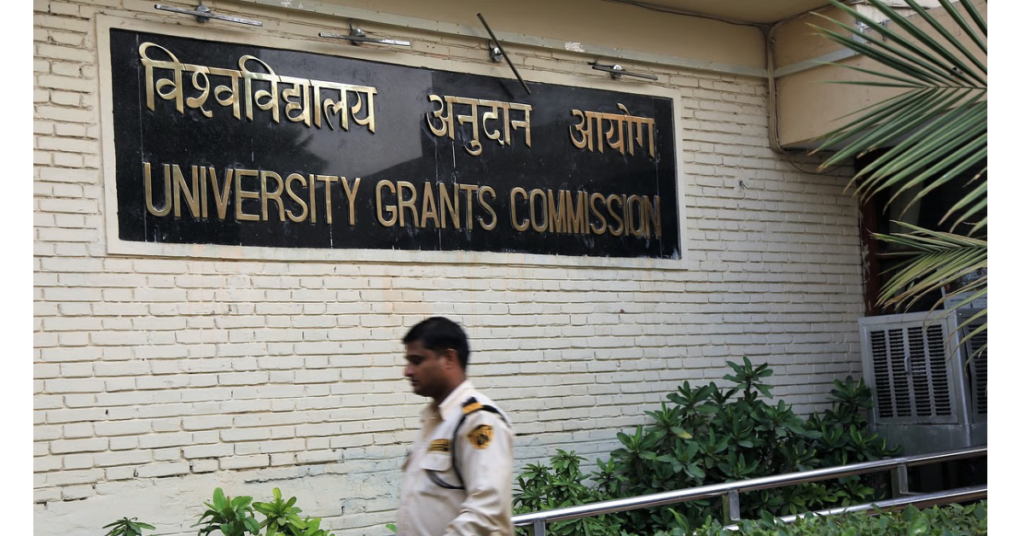From 2025, UGC bans distance and online learning in healthcare, psychology, nutrition, and allied courses to improve quality in professional training.
In a major policy shift, the University Grants Commission (UGC) has announced that healthcare and allied disciplines can no longer be taught through Open and Distance Learning (ODL) or online education. The decision, effective from the July–August 2025 academic session, marks a turning point in how professional courses related to health sciences will be delivered in India.
The move follows the recommendations of the 24th Distance Education Bureau (DEB) Working Group meeting held on April 22, 2025. These recommendations were later ratified at the UGC’s 592nd meeting on July 23. With this order, higher education institutions (HEIs) across the country have been directed to discontinue offering these courses in remote learning formats.

Courses Under the Ban
The ban applies to programmes falling under the ambit of the National Commission for Allied and Healthcare Professions (NCAHP) Act, 2021. This includes widely popular subjects such as:
- Psychology
- Microbiology
- Food and Nutrition Science
- Biotechnology
- Clinical Nutrition and Dietetics
For institutions that already hold recognition to run such programmes in ODL or online mode, the UGC has clarified that this approval will now be withdrawn. Further, no new admissions will be allowed from the 2025–26 academic year onwards.
In cases where a course offers multiple specialisations, only the healthcare-related streams will be discontinued. For example, a Bachelor of Arts (BA) programme that includes majors in English, Hindi, History, Political Science, Philosophy, Sociology, and Psychology will now continue only with the non-healthcare subjects. The psychology major will stand discontinued under this directive.
Why This Move?
The UGC’s decision is largely driven by concerns about the quality of professional training in the healthcare sector. Unlike many academic fields, healthcare and allied sciences require intensive hands-on training, close supervision, and a strong student-teacher engagement ratio—elements that are difficult to replicate in an online or distance mode.
Former head of the Psychology Department at the University of Mumbai, Professor Satishchandra, welcomed the move, pointing out the growing demand for psychology as a discipline in India. “In the last decade, psychology has become one of the most sought-after courses. Many institutions, both public and private, have jumped in to offer these programmes, but unfortunately, several have failed to maintain proper academic standards. This step by UGC will help curb such dilution of quality,” he said.
Vivek Belhekar, the current head of the Psychology Department at Mumbai University, echoed similar sentiments. He highlighted that clinical psychology, in particular, demands rigorous practical training and close mentoring, something that cannot be achieved effectively in the distance education model. “As per the Rehabilitation Council of India guidelines, we need a 2:1 student-teacher ratio. This is essential to provide adequate supervision, but such training frameworks are simply not possible in ODL mode,” he explained.
The Challenge of Limited Seats
While experts agree that the ban is aimed at improving professional standards, it also raises concerns about the accessibility of such programmes. With the growing interest in psychology, biotechnology, and nutrition sciences, the number of students seeking admission is steadily rising. However, physical infrastructure in universities and colleges is limited, often leaving thousands of aspiring students without an opportunity.
Belhekar acknowledged this dilemma, stressing the need for the UGC to simultaneously work on creating alternatives. “The demand for clinical psychology is rising exponentially. If we reduce access without providing substitutes, it may create a bottleneck. The UGC should explore structured online models or hybrid programmes under strict supervision to strike a balance between quality and access,” he suggested.
Balancing Access and Quality
The decision highlights the broader challenge facing higher education in India: balancing accessibility with academic rigor. On one hand, online education has enabled thousands of students from remote parts of the country to pursue higher education without relocation costs. On the other, healthcare training involves laboratory exposure, clinical practice, and practical assessments that simply cannot be replicated through digital platforms.
While the ban may temporarily restrict options for students, experts believe it will strengthen the credibility of healthcare-related courses in the long run. It also places responsibility on universities and policymakers to create more physical seats, invest in training facilities, and explore supervised hybrid learning models.
As the July–August 2025 session approaches, institutions will have to comply swiftly with UGC’s directive. For students, the immediate concern will be exploring alternate programmes or preparing for on-campus admission processes.
What is clear, however, is that the UGC has drawn a firm line: in healthcare education, quality training will not be compromised for convenience.